THE ROLE OF THE SCIENTIFIC COMMITTEE
The Scientific Committee of the Rivesaltes Camp Memorial comprises renowned figures from academic institutions in France and abroad. Its work is aligned with the project of the EPCC (French Public Institution for Cultural Cooperation), focusing on the consolidation of historical research into the population groups that were accommodated at the camp. It employs different disciplines to shed light on the history and memory of the site: ethnology, anthropology, sociolinguistics, political science, philosophy, sociology, neuroscience, practices in memorial heritage and media coverage of conflicts.
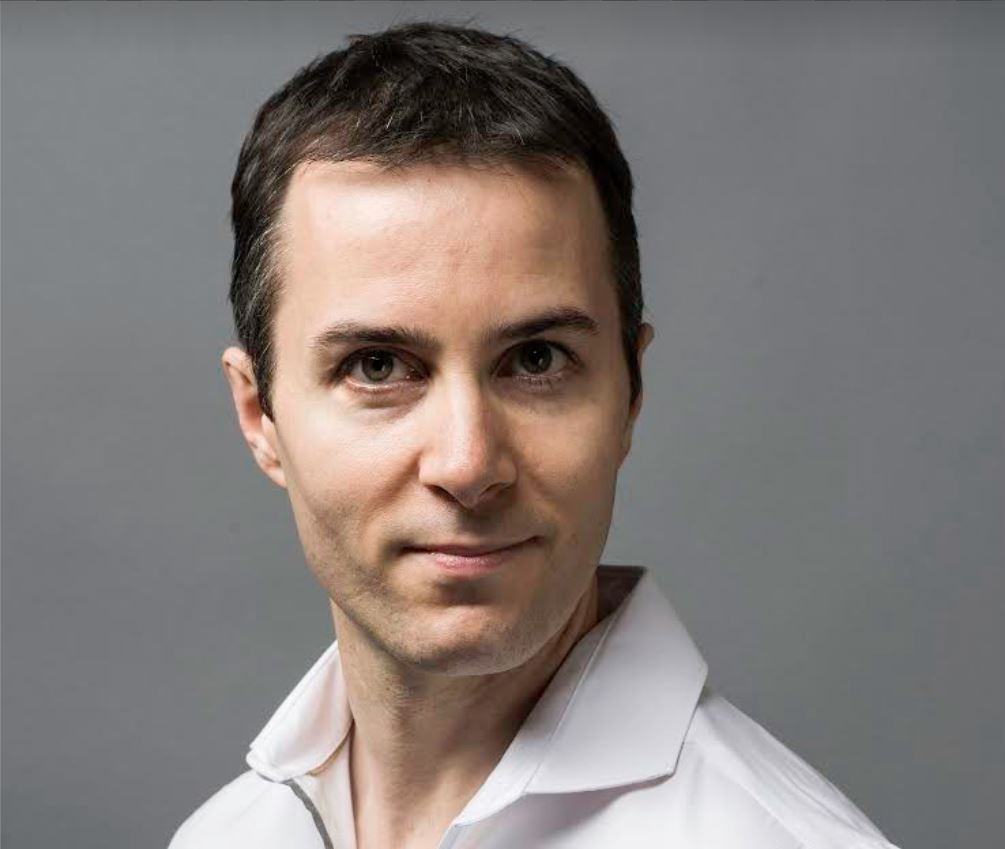
LAURENT JOLY PRESIDENT OF THE SCIENTIFIC COMMITTEE OF THE MEMORIAL
A research director at the CNRS, Laurent Joly specialises in the study of anti-Semitism, the Shoah and the Vichy régime.
Highlights include a theses on Vichy et le Commissariat aux questions juives (1941-1944) at the Université Paris 1 in 2004, and numerous standard texts on this period, including La rafle du Vel d’Hiv. Paris, juillet 1942, Paris, Grasset, 2022 (François Mauriac prize 2022), L’État contre les juifs. Vichy, les nazis et la persécution antisémite (1940-1944), revised and updated edition, Flammarion/Champs histoire, 2020 [2018] (2021 Ernest & Claire Heilbronn foundation prize for best history book on the Second World War, under the aegis of the Shoah Memorial), and Naissance de l’Action française. Maurice Barrès, Charles Maurras et l’extrême droite nationaliste au tournant du XXe siècle, Grasset, 2015.
COMPOSITION OF THE SCIENTIFIC COMMITTEE
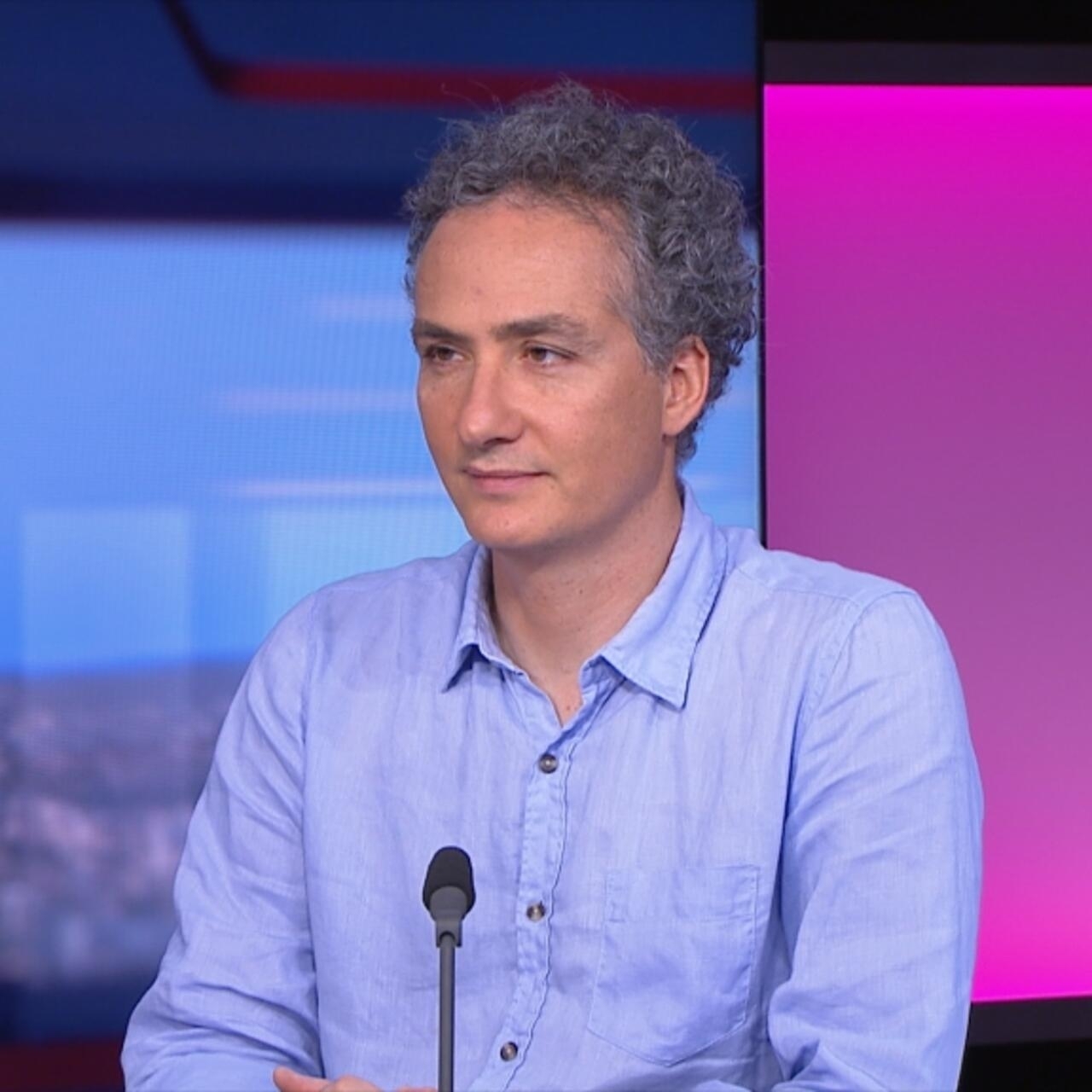
Ilsen ABOUT
Ilsen About est enseignant-chercheur à l’Université de Provence et affilié au laboratoire IRIS de l’EHESS. Docteur en histoire de l’Institut Universitaire Européen, il est l'auteur de nombreux articles et contributions liées à l’histoire des polices d’identification en Europe entre 1880 et 1930 et spécialement en France et en Italie.
Ses recherches portent également sur le contrôle des populations migrantes et en particulier des Sinti à la même période.
Parmi ses ouvrages :
- Lumières des Saintes. Le pèlerinage des Gitans aux Saintes-Maries-de-la-Mer : une histoire photographique, Paris, Textuel, 2023, 196 p.
- Ilsen About, Vincent Denis, Histoire de l’identification des personnes, Paris, La Découverte, 2010, 125 p.
- Ilsen About, Clément Chéroux, Fotografie und Geschichte, Leipzig, Leipzig Verlag, 2004, 50 p.
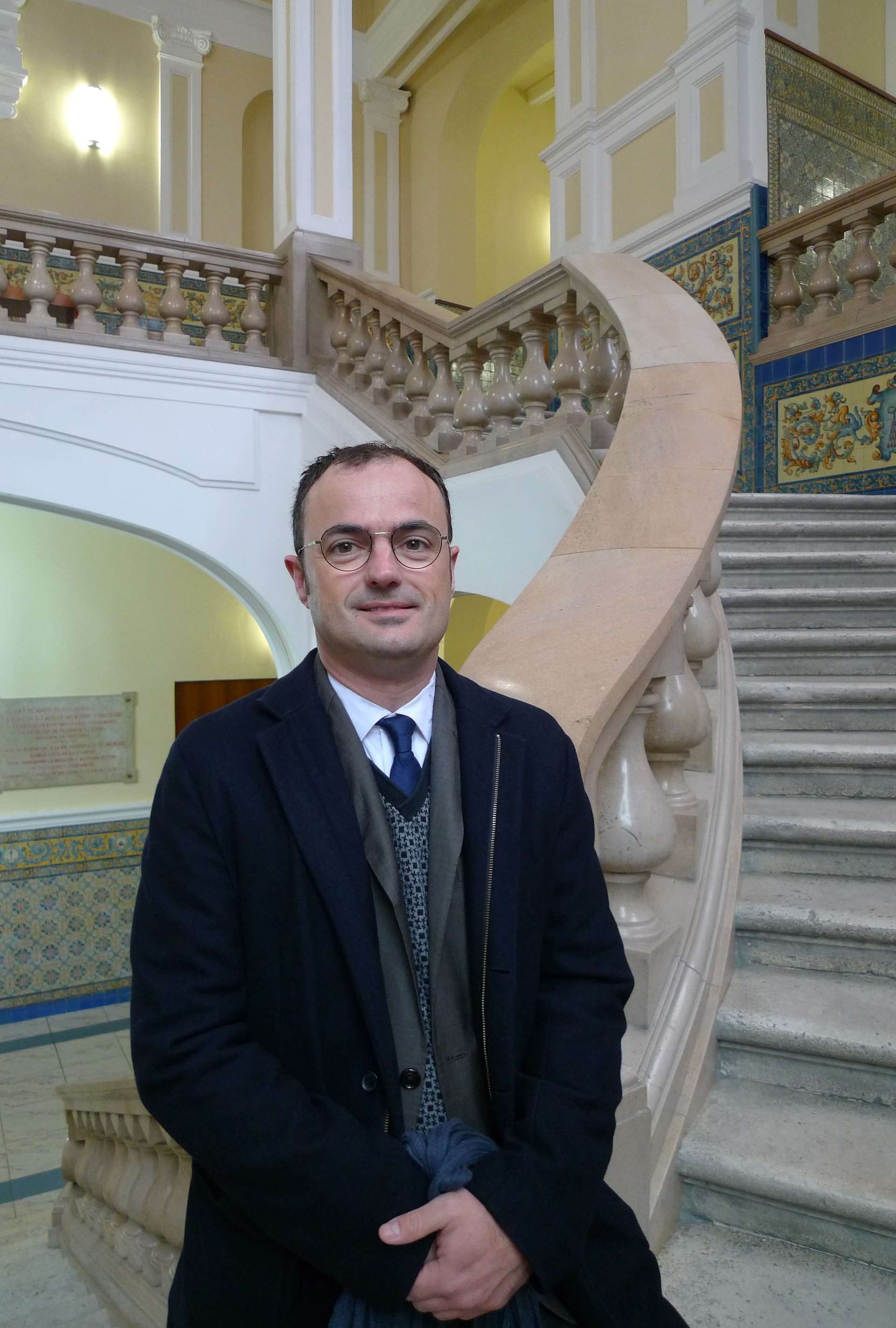
Alfons ARAGONESES AGUADO
Alfons Aragoneses Aguado est professeur d'histoire du droit à l'université Pompeu Fabra (UPF) de Barcelone.
Docteur en droit, il a mené des recherches et enseigné dans des institutions espagnoles, allemandes, brésiliennes et italiennes.
Il a publié des recherches sur le droit franquiste et sur les lois et politiques mémorielles et est actuellement Directeur général de la mémoire démocratique du gouvernement de Catalogne, en charge de la recherche de personnes disparues, de la réparation économique des anciens prisonniers politiques et des commémorations.
Parmi ses ouvrages :
- 2007 - Recht im “fin de siècle“. Briefe von Raymond Saleilles an Eugen Huber, Frankfurt am Main, Vittorio Klostermann, ISBN 978-3-465-04038-5.10
- 2009 - Un jurista del Modernismo. Raymond Saleilles y los orígenes del derecho comparado, Madrid, Dykinson, ISBN 978-84-9849-786-1.1112
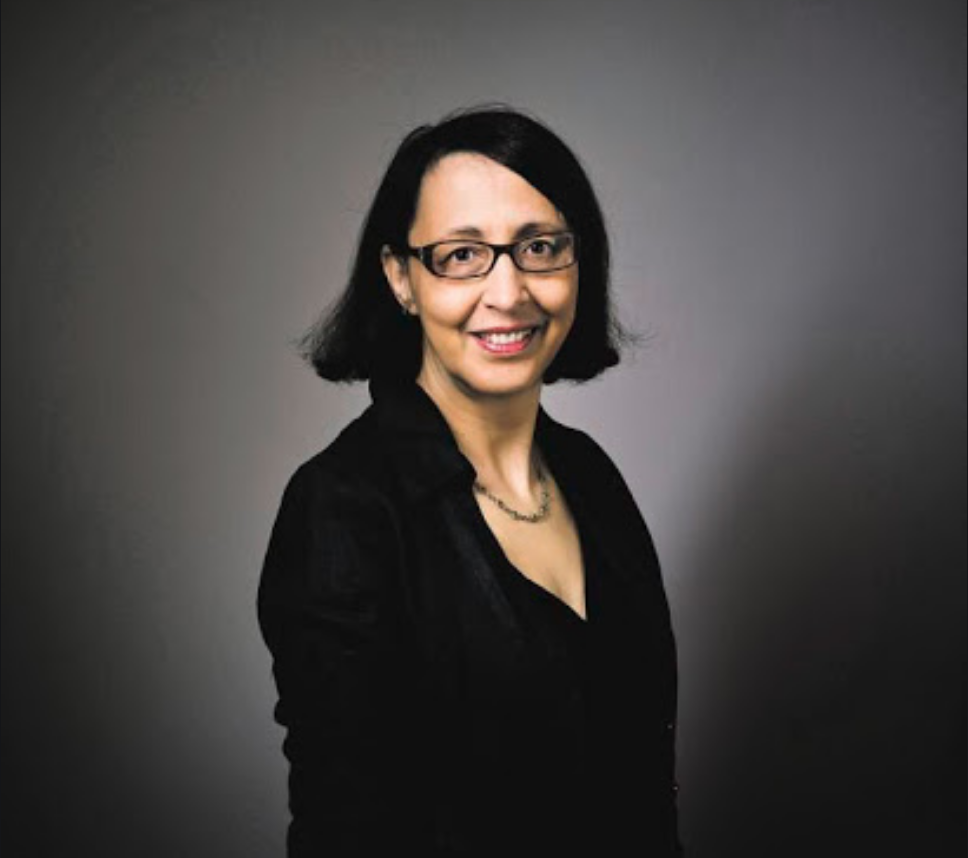
Fatima BESNACI LANCOU
Doctor of contemporary history, specialist in the war in Algeria, in particular internment, concentration and refugee camps in Morocco and Tunisia. The author of several standard works, including Prisons et camps d’internement en Algérie – Les missions du Comité international de la Croix Rouge dans la guerre d’indépendance – 1955/1962 (éditions du Croquant, 2018); Harkis au camp de Rivesaltes, La relégation des familles, septembre 1962 - décembre 1964 (Éditions Loubatières / Mémorial du Camp de Rivesaltes, 2019); Ils ont dit non à l'abandon des harkis - Désobéir pour sauver (Éditions Loubatières, 2022) et Réfugiés et détenus de la guerre d'Algérie - Mémoires photographiques et historiques (Éditions de l’Atelier, 2022).
Member of the jury for the Seligmann anti-racist literary prize – Chancellerie de la Sorbonne.
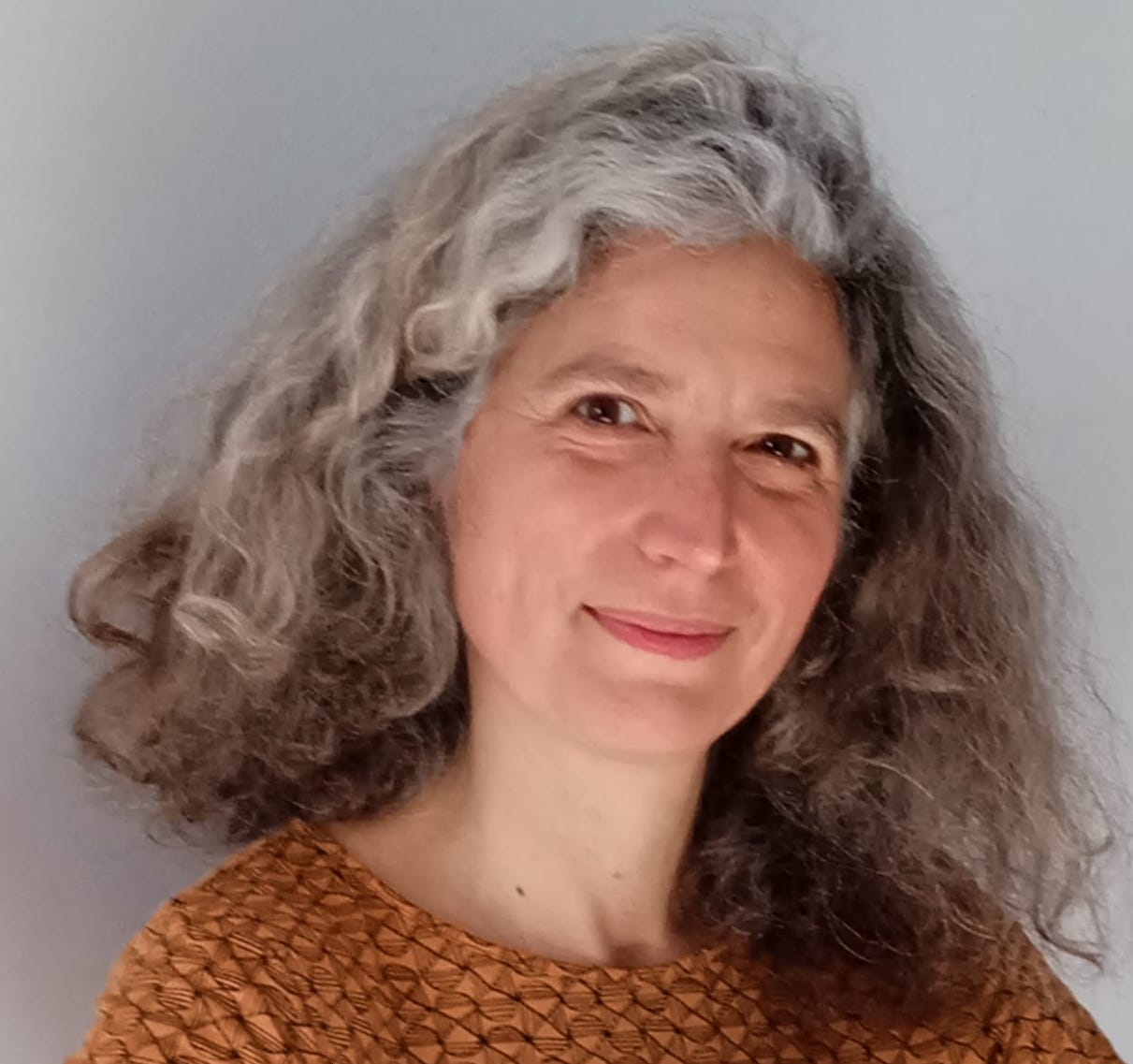
Raphaëlle BRANCHE
Raphaëlle Branche is a historian (Université de Paris Nanterre/Institut des Sciences Sociales du Politique) and president of the Association Historiennes et Historiens du Contemporain (H2C). Her research work is devoted essentially to violence in the colonial context and the Algerian war of independence (1954-1962). Her latest work is Papa, qu’as-tu fait en Algérie?. Enquête sur un silence familial is about how experience of the war in Algeria has been passed on in the families of conscripts from mainland France. She co-wrote the six-part documentary series En guerre(s) pour l’Algérie, made by Raphaël Lewandowski (ARTE/INA 2022).
Papa, qu’as-tu fait en Algérie? Enquête sur un silence familial, Paris, La Découverte, 2020, 511 p. Augustin Thierry prize at Rendez-vous de l’histoire, Blois 2020.
Tal BRUTTMANN
Historian specialising in the Shoah, the Vichy régime and anti-Semitism in 20th-century France, he has published widely, recently including the major work Un album d’Auschwitz. Comment les nazis ont photographié leurs crimes, with Stefan Hördler and Christoph Kreutzmüller (Seuil, 2023).
His current research is on the major anti-Jewish operation of 26th August 1942 in the whole of the unoccupied zone of France.
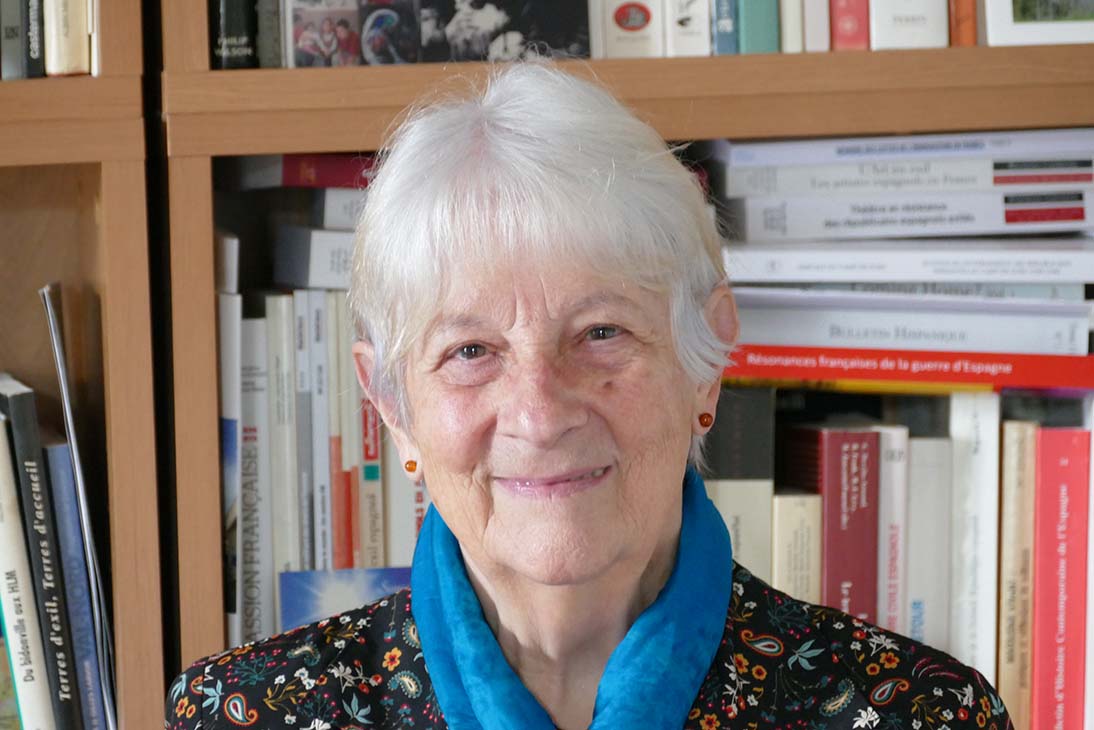
Geneviève DREYFUS-ARMAND
Senior librarian, doctor of history, honorary director of La Contemporaine, bibliothèque, archives et musée des mondes contemporains, Université de Paris-Nanterre (up to 2018, BDIC, Bibliothèque de documentation internationale contemporaine).
She has published several studies of the Spanish republican exile in France and edited some fifteen works of contemporary history. Recent publications: Septfonds, 1939-1944, dans l’archipel des camps français (2019) and Les Républicains espagnols à Rivesaltes. D’un camp à l’autre, leurs enfants témoignent (2020). And joint author of La Guerre d’Espagne dans la littérature d’hier à aujourd’hui (2022).
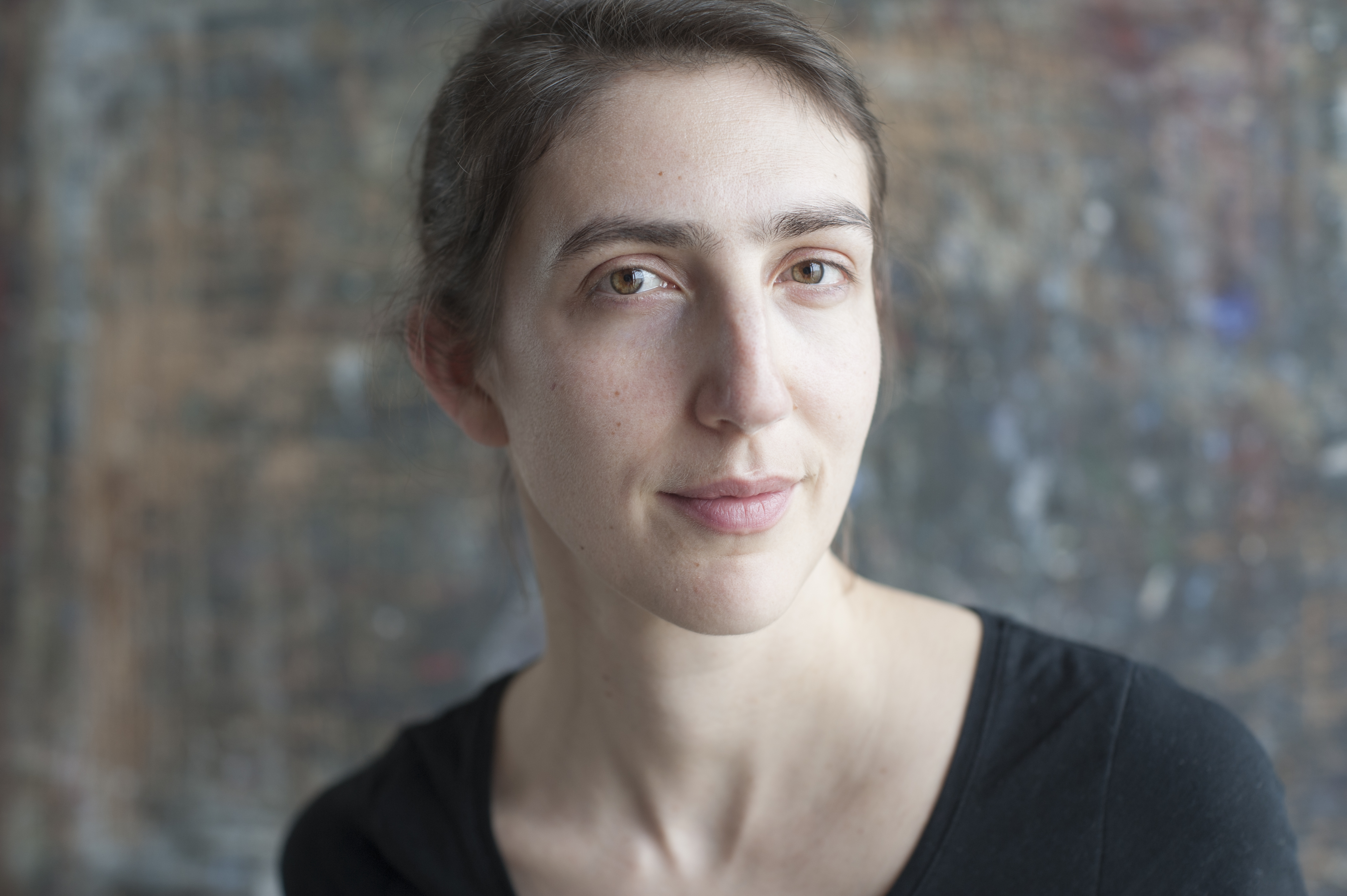
Sarah GENSBURGER
A research director at the CNRS and member of the Centre de Sociologie des Organisations at Sciences Po Paris, Sarah Gensburger works from an interdisciplinary perspective. As a sociologist and political scientist, she studies public policies on memory and what their "publics" make of them. On this issue, she has published: Les Justes de France. Politiques publiques de la mémoire (Presses de Sciences Po, 2010) and, with Sandrine Lefranc, À quoi servent les politiques de mémoire (Presses de Sciences Po, 2017) and La mémoire collective en question(s) (PUF, 2023).
As a historian, she has been working for several years on a history of the Shoah as a social history from a spatial perspective. She has published: Images d’un pillage. Album de la spoliation des Juifs à Paris. 1940-1944 (Textuel, 2010) and, with Isabelle Backouche and Eric Le Bourhis, Persécution des juifs et espace urbain (Paris 1940-1946), a special issue of Histoire Urbaine (2022/1, no. 62). Her work has been translated into several languages and in 2021 she was elected President of the Memory Studies Association.
(photo Didier Goupy)
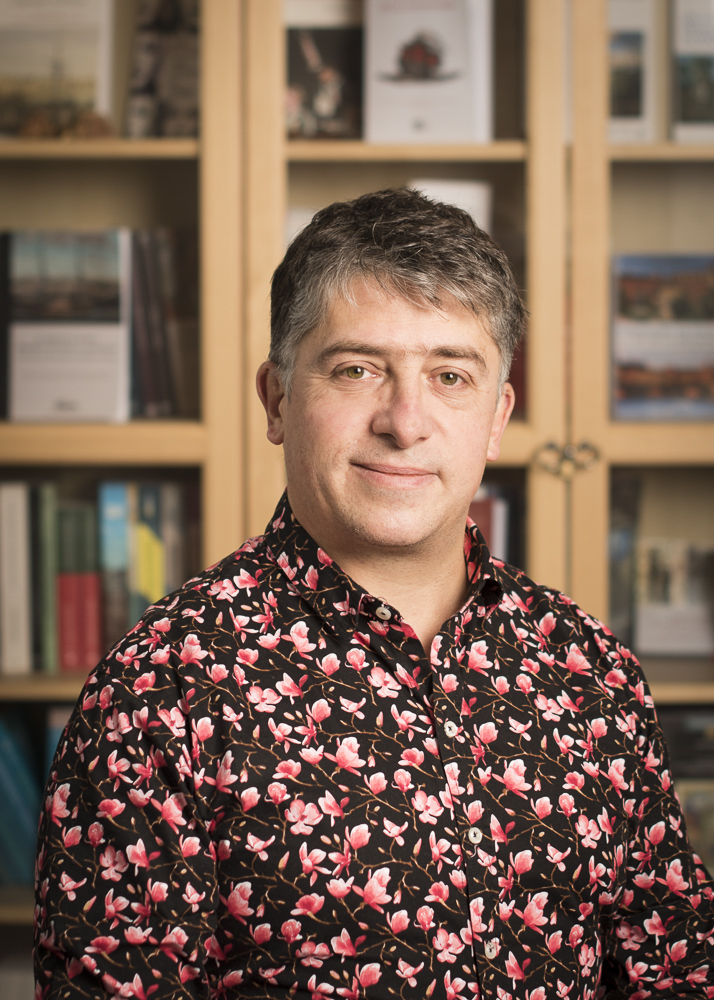
François GODICHEAU
A historian with a doctorate from EHESS, member of the Institut universitaire de France, lecturer in contemporary history at the Université Toulouse Jean Jaurès, he is Director of the FRAMESPA research group, with 100 permanent members, including 10 CNRS researchers and 120 doctorands and many of the region's historians and young researchers, in an essential academic nursery in the Occitanie region.
His thesis was on Répression et ordre public en Catalogne pendant la Guerre civile (1936-1939) and he is currently working on Francoism.
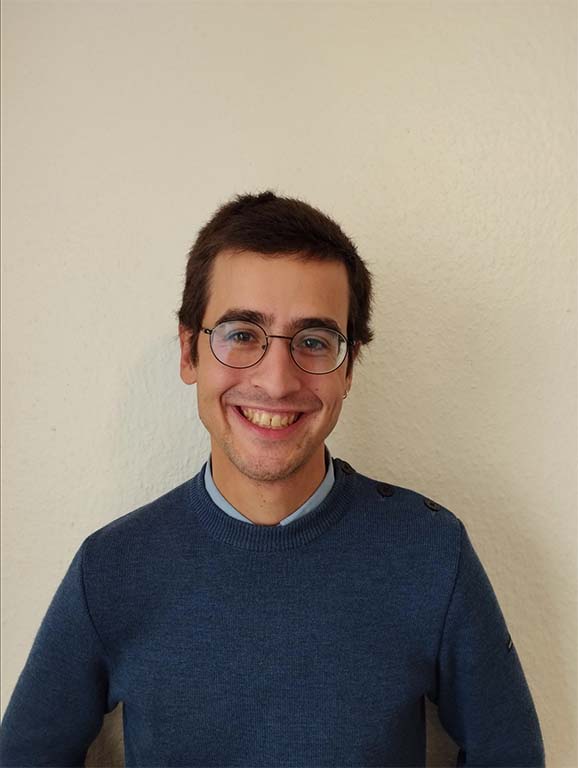
Théophile LEROY
Théophile Leroy is preparing a doctorate in history at EHESS (École des hautes études en sciences sociales) and is an ATER assistant lecturer in contemporary history at Sciences Po Strasbourg. He studies the development of the persecution of Sinti in the Rhineland in the Second World War. Identified as "nomads", numerous families from the Alsace and Moselle regions were then interned in camps in south-west France (Agde, Argelès, Rivesaltes). He is a researcher on the Témoignages de la persécution des Roms, Sinti et Voyageurs programme, which collects oral and written records of the people persecuted as nomads in France between 1940 and 1946.
He is also working on a project for a European encyclopaedia of the genocide of Roma and Sinti in Europe, edited by Karola Fings. In 2022 he published an article based on his doctoral research, entitled ‘Gypsies’ in the Police Eye. Identification, Census and Deportation of Sinti and Roma from Annexed Alsace, 1940 to 1944 in a collective work published by the Arolsen archives. He has also contributed to the EHRI blog with a text entitled Tracing the Dislocation of a Sinti Family in a Genocidal Context: the R165 Collection of the German Federal Archives.
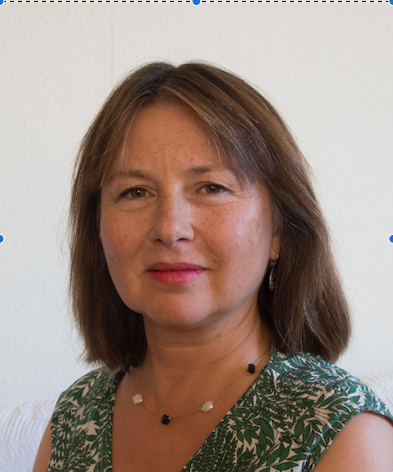
Marie-Anne MATARD-BONUCCI
A historian, lecturer in contemporary history at the Université Paris VIII and senior member of the Institut Universitaire de France, Marie-Anne Matard-Bonucci is a specialist in fascism and political violence in Italy. Her thesis is about the history of fascism in Sicily. Her current research focuses on the history of anti-Semitism in France and Italy. She has published L’Italie fasciste et la persécution des Juifs, PUF, 2012, and Totalitarisme fasciste, CNRS Editions, 2018.
Founder of the Cercle de formation et de recherche sur le racisme et l’antisémitisme at the Institut de Géopolitique-Lab, she has been president of ALARMER (association to combat anti-Semitism and racisms through the mobilisation of education and research) which sets out to make academic knowledge about racisms and anti-Semitism available to the general public, and edits the journal Revue Alarmer (https://revue.alarmer.org/).
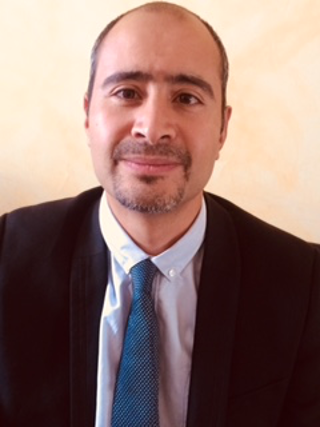
Abderahmen MOUMEN
Abderahmen Moumen is a historian, a graduate of the Université de Provence, associate researcher at the UMR Telemme (CNRS-Université d'Aix-Marseille), director of the regional ONaCVG (veterans' office) in Bouches-du-Rhône and national adviser on the history and memories of the war in Algeria, member of the scientific committee of DILCRAH, the inter-ministerial delegation to combat racism, anti-Semitism and anti-LGBT hate.
His research focuses on the history of populations in Algeria, the war in Algeria and migratory movements between Algeria and France, more specifically migrations of a political nature, such as repatriations from Algeria and the Harkis. With ONaCVG and the national education system, he has taken part in teaching the history of colonisation, the war in Algeria and memories of them in schools.
Céline PAUTHIER
Lecturer in contemporary history at Nantes Université, researcher at the Centre de Recherches en Histoire Internationale et Atlantique (CRHIA) and associate researcher at the Institut des Mondes Africains (IMAf). A historian of Guinea, in 2014 Céline Pauthier defended a thesis entitled L'indépendance ambigüe : construction nationale, anticolonialisme et pluralisme culturel en Guinée (1945-2010), 782 p., Université Paris Diderot.
Her work focuses on Guinean independence and revolution from the 1940s to the 1980s: political repression and its consequences for memory; Guinean mouvements and diplomacy in the Cold War context; and the cultural and emotional fabric of the nation.
Odile Goerg, Céline Pauthier, Abdoulaye Diallo, Le NON de la Guinée (1958) : entre mythe, relecture historique et résonances contemporaines, Paris, L'Harmattan, 2010.
Céline Pauthier et al (ed.), Socialismes en Afrique, Paris, Editions de la MSH, 2021.
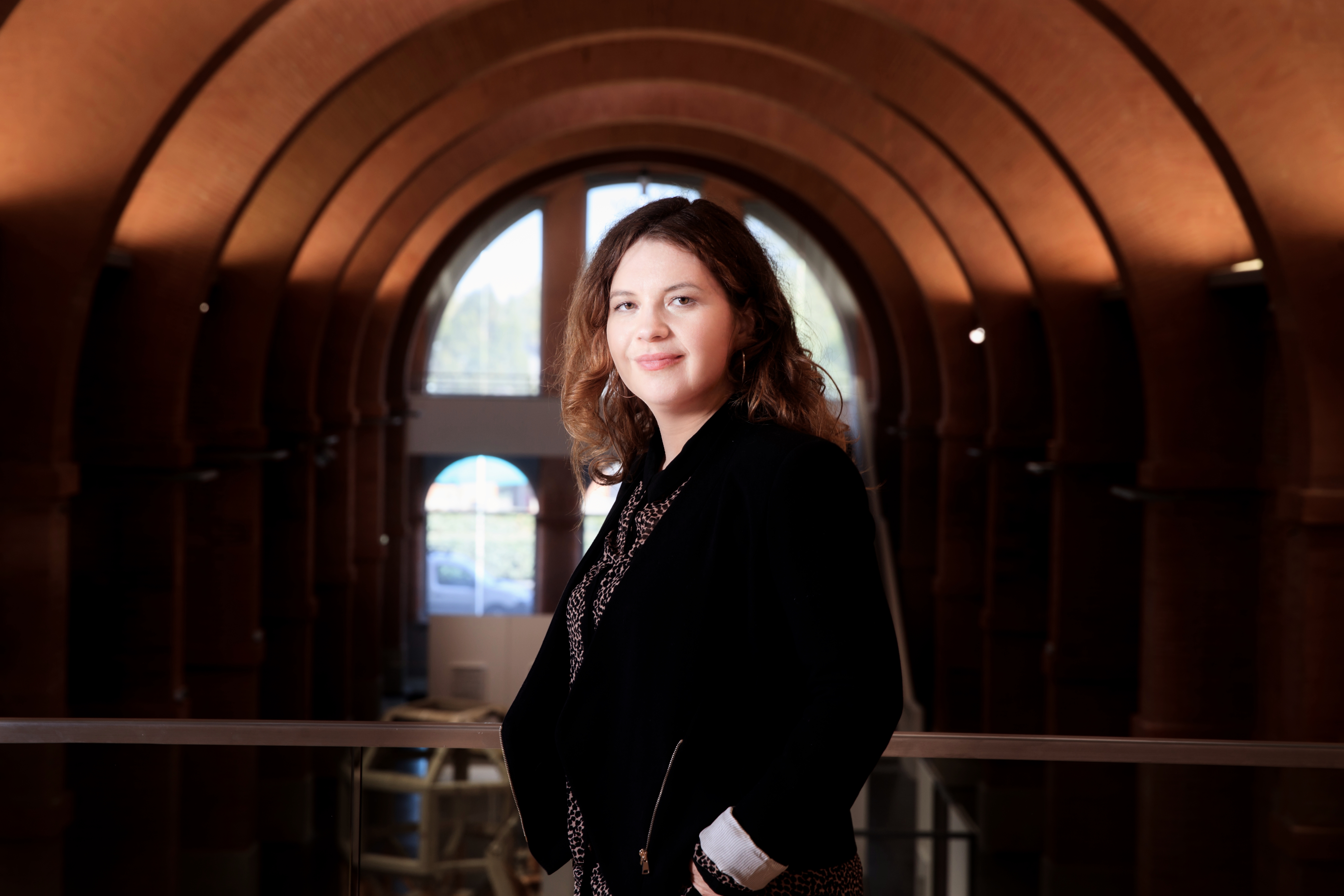
Annabelle TENEZE
Annabelle Ténèze is an art historian and has been senior heritage conservation officer and director general of Les Abattoirs, Musée - Frac Occitanie Toulouse since 2016.
After studying at the École nationale des Chartes and the Institut national du Patrimoine, she became the curator in charge of the graphic arts department of the national Picasso museum in Paris (2006-2012). She was then appointed head of the Château de Rochechouart museum of contemporary art in Haute-Vienne (2012-2016), presenting the exhibitions Carolee Schneemann. Œuvres d’histoire, Kent Monkman. L’artiste en chasseur as well as Raoul Hausmann, dadasophe. De Berlin à Limoges and L’iris de Lucy. Artistes africaines contemporaines.
Among her areas of research, she is interested in what defines historic and contemporary scenes, and the reasons for visibilities and invisibilities. Since arriving at the Abattoirs, she has overseen, among others, the thematic exhibitions Picasso et l’exil. Une histoire de l’art espagnol en résistance (2019, in partnership with the national Picasso museum Paris), with a section devoted to artists in the camps, and Je suis né étranger (2019, a contemporary programme of 20 themed exhibitions in the Occitanie region), on the occasion of the 80th anniversary of the Retirada from Spain, as well as the exhibitions Revue noire. Une histoire des arts contemporains africains, La Déconniatrie. Art, exil et psychiatrie autour de François Tosquelles (2021, on tour with the CCCB, Barcelona; Museo Centro de Arte Reina Sofía, Madrid; Folk Art Museum, New York), and La Dame à la licorne. Médiévale et si contemporaine (2021, in partnership with the Musée national du Moyen Âge - Musée de Cluny). She has also devoted retrospectives at Les Abattoirs to distinctive historical figures of the 20th and 21st century and worked on special projects with contemporary artists.
In autumn 2022 she curated the exhibition Niki de Saint Phalle. Les années 1980-1990 : l’art en liberté at Les Abattoirs and the exhibition La suite de l’histoire in the Jardin des Tuileries at the invitation of the Musée du Louvre and Paris+ by Artbasel.
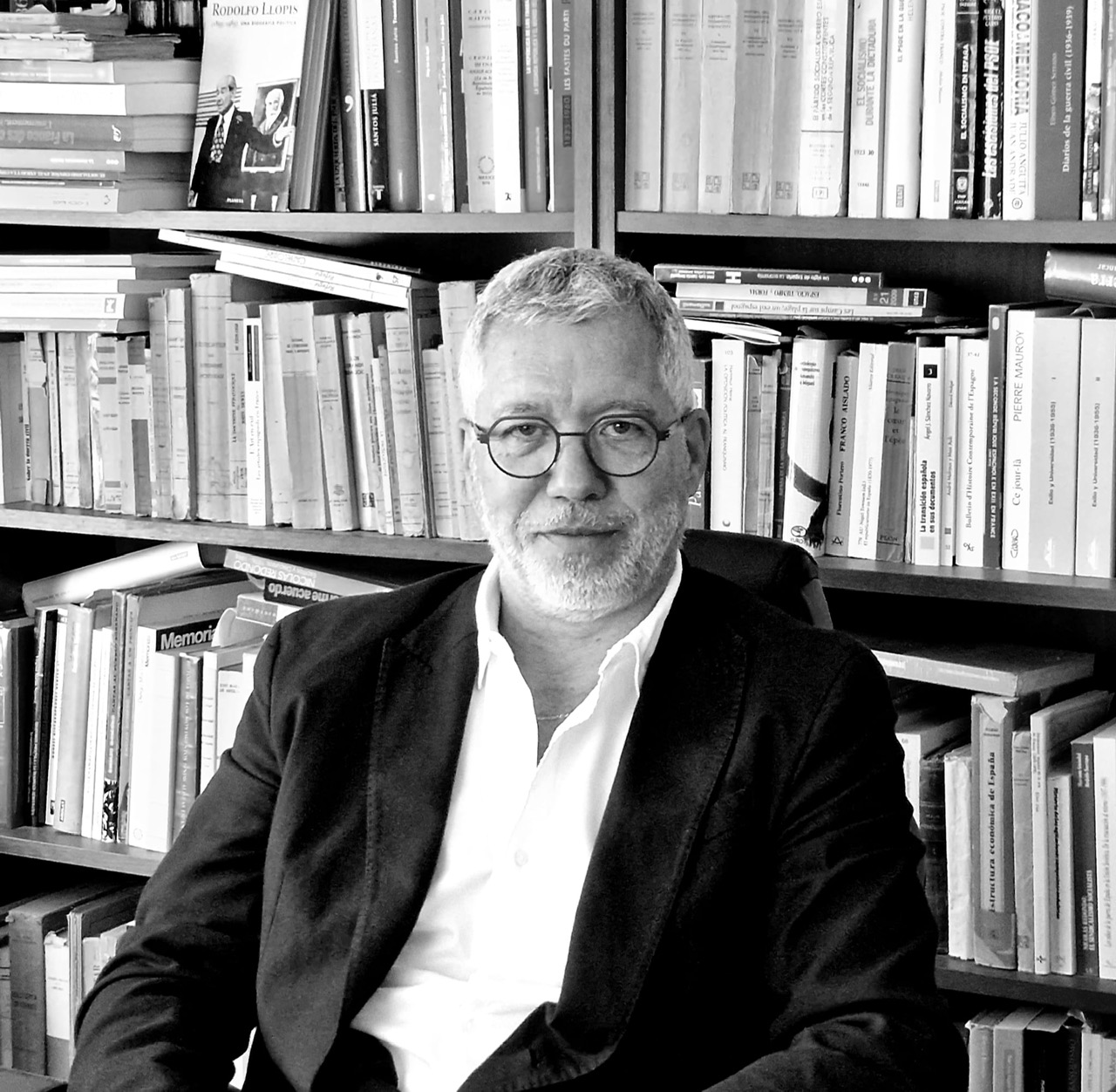
Bruno VARGAS
Bruno Vargas is a lecturer in contemporary Spanish history and civilisation at the INU Champollion (Albi) - Université de Toulouse. He is a permanent researcher with FRAMESPA (Université de Toulouse - Jean Jaurès-CNRS) and an elected member of the scientific committee of the institute of human and social sciences at the CNRS and an expert at the Spanish Research Agency. A specialist in the 20th-century political history of Spain, he is the author or co-author of several books and articles in Spanish and French.
These include: De l’exil à la Transition : perspectives et bilan historiques (1939-1978), Toulouse, PUM, 2023, co-edited with Michel Martinez; with Jean-Pierre Amalric and Geneviève Dreyfus-Armand, Huit ans de République en Espagne. Entre réforme, guerre et révolution (1931-1939), Toulouse, PUM, 2018; Les Espagnols en France. Une vie au-delà des Pyrénées, with Didier Debord, Ed. de l’Attribut, 2010, and La Seconde République espagnole en exil en France (1939-1977), Presses universitaires de Champollion, 2008.
Institut national universitaire Champollion

Ilsen ABOUT
Ilsen About est enseignant-chercheur à l’Université de Provence et affilié au laboratoire IRIS de l’EHESS. Docteur en histoire de l’Institut Universitaire Européen, il est l'auteur de nombreux articles et contributions liées à l’histoire des polices d’identification en Europe entre 1880 et 1930 et spécialement en France et en Italie.
Ses recherches portent également sur le contrôle des populations migrantes et en particulier des Sinti à la même période.
Parmi ses ouvrages :
- Lumières des Saintes. Le pèlerinage des Gitans aux Saintes-Maries-de-la-Mer : une histoire photographique, Paris, Textuel, 2023, 196 p.
- Ilsen About, Vincent Denis, Histoire de l’identification des personnes, Paris, La Découverte, 2010, 125 p.
- Ilsen About, Clément Chéroux, Fotografie und Geschichte, Leipzig, Leipzig Verlag, 2004, 50 p.

Alfons ARAGONESES AGUADO
Alfons Aragoneses Aguado est professeur d'histoire du droit à l'université Pompeu Fabra (UPF) de Barcelone.
Docteur en droit, il a mené des recherches et enseigné dans des institutions espagnoles, allemandes, brésiliennes et italiennes.
Il a publié des recherches sur le droit franquiste et sur les lois et politiques mémorielles et est actuellement Directeur général de la mémoire démocratique du gouvernement de Catalogne, en charge de la recherche de personnes disparues, de la réparation économique des anciens prisonniers politiques et des commémorations.
Parmi ses ouvrages :
- 2007 - Recht im “fin de siècle“. Briefe von Raymond Saleilles an Eugen Huber, Frankfurt am Main, Vittorio Klostermann, ISBN 978-3-465-04038-5.10
- 2009 - Un jurista del Modernismo. Raymond Saleilles y los orígenes del derecho comparado, Madrid, Dykinson, ISBN 978-84-9849-786-1.1112

Fatima BESNACI LANCOU
Doctor of contemporary history, specialist in the war in Algeria, in particular internment, concentration and refugee camps in Morocco and Tunisia. The author of several standard works, including Prisons et camps d’internement en Algérie – Les missions du Comité international de la Croix Rouge dans la guerre d’indépendance – 1955/1962 (éditions du Croquant, 2018); Harkis au camp de Rivesaltes, La relégation des familles, septembre 1962 - décembre 1964 (Éditions Loubatières / Mémorial du Camp de Rivesaltes, 2019); Ils ont dit non à l'abandon des harkis - Désobéir pour sauver (Éditions Loubatières, 2022) et Réfugiés et détenus de la guerre d'Algérie - Mémoires photographiques et historiques (Éditions de l’Atelier, 2022).
Member of the jury for the Seligmann anti-racist literary prize – Chancellerie de la Sorbonne.

Raphaëlle BRANCHE
Raphaëlle Branche is a historian (Université de Paris Nanterre/Institut des Sciences Sociales du Politique) and president of the Association Historiennes et Historiens du Contemporain (H2C). Her research work is devoted essentially to violence in the colonial context and the Algerian war of independence (1954-1962). Her latest work is Papa, qu’as-tu fait en Algérie?. Enquête sur un silence familial is about how experience of the war in Algeria has been passed on in the families of conscripts from mainland France. She co-wrote the six-part documentary series En guerre(s) pour l’Algérie, made by Raphaël Lewandowski (ARTE/INA 2022).
Papa, qu’as-tu fait en Algérie? Enquête sur un silence familial, Paris, La Découverte, 2020, 511 p. Augustin Thierry prize at Rendez-vous de l’histoire, Blois 2020.
Tal BRUTTMANN
Historian specialising in the Shoah, the Vichy régime and anti-Semitism in 20th-century France, he has published widely, recently including the major work Un album d’Auschwitz. Comment les nazis ont photographié leurs crimes, with Stefan Hördler and Christoph Kreutzmüller (Seuil, 2023).
His current research is on the major anti-Jewish operation of 26th August 1942 in the whole of the unoccupied zone of France.

Geneviève DREYFUS-ARMAND
Senior librarian, doctor of history, honorary director of La Contemporaine, bibliothèque, archives et musée des mondes contemporains, Université de Paris-Nanterre (up to 2018, BDIC, Bibliothèque de documentation internationale contemporaine).
She has published several studies of the Spanish republican exile in France and edited some fifteen works of contemporary history. Recent publications: Septfonds, 1939-1944, dans l’archipel des camps français (2019) and Les Républicains espagnols à Rivesaltes. D’un camp à l’autre, leurs enfants témoignent (2020). And joint author of La Guerre d’Espagne dans la littérature d’hier à aujourd’hui (2022).

Sarah GENSBURGER
A research director at the CNRS and member of the Centre de Sociologie des Organisations at Sciences Po Paris, Sarah Gensburger works from an interdisciplinary perspective. As a sociologist and political scientist, she studies public policies on memory and what their "publics" make of them. On this issue, she has published: Les Justes de France. Politiques publiques de la mémoire (Presses de Sciences Po, 2010) and, with Sandrine Lefranc, À quoi servent les politiques de mémoire (Presses de Sciences Po, 2017) and La mémoire collective en question(s) (PUF, 2023).
As a historian, she has been working for several years on a history of the Shoah as a social history from a spatial perspective. She has published: Images d’un pillage. Album de la spoliation des Juifs à Paris. 1940-1944 (Textuel, 2010) and, with Isabelle Backouche and Eric Le Bourhis, Persécution des juifs et espace urbain (Paris 1940-1946), a special issue of Histoire Urbaine (2022/1, no. 62). Her work has been translated into several languages and in 2021 she was elected President of the Memory Studies Association.
(photo Didier Goupy)

François GODICHEAU
A historian with a doctorate from EHESS, member of the Institut universitaire de France, lecturer in contemporary history at the Université Toulouse Jean Jaurès, he is Director of the FRAMESPA research group, with 100 permanent members, including 10 CNRS researchers and 120 doctorands and many of the region's historians and young researchers, in an essential academic nursery in the Occitanie region.
His thesis was on Répression et ordre public en Catalogne pendant la Guerre civile (1936-1939) and he is currently working on Francoism.

Théophile LEROY
Théophile Leroy is preparing a doctorate in history at EHESS (École des hautes études en sciences sociales) and is an ATER assistant lecturer in contemporary history at Sciences Po Strasbourg. He studies the development of the persecution of Sinti in the Rhineland in the Second World War. Identified as "nomads", numerous families from the Alsace and Moselle regions were then interned in camps in south-west France (Agde, Argelès, Rivesaltes). He is a researcher on the Témoignages de la persécution des Roms, Sinti et Voyageurs programme, which collects oral and written records of the people persecuted as nomads in France between 1940 and 1946.
He is also working on a project for a European encyclopaedia of the genocide of Roma and Sinti in Europe, edited by Karola Fings. In 2022 he published an article based on his doctoral research, entitled ‘Gypsies’ in the Police Eye. Identification, Census and Deportation of Sinti and Roma from Annexed Alsace, 1940 to 1944 in a collective work published by the Arolsen archives. He has also contributed to the EHRI blog with a text entitled Tracing the Dislocation of a Sinti Family in a Genocidal Context: the R165 Collection of the German Federal Archives.

Marie-Anne MATARD-BONUCCI
A historian, lecturer in contemporary history at the Université Paris VIII and senior member of the Institut Universitaire de France, Marie-Anne Matard-Bonucci is a specialist in fascism and political violence in Italy. Her thesis is about the history of fascism in Sicily. Her current research focuses on the history of anti-Semitism in France and Italy. She has published L’Italie fasciste et la persécution des Juifs, PUF, 2012, and Totalitarisme fasciste, CNRS Editions, 2018.
Founder of the Cercle de formation et de recherche sur le racisme et l’antisémitisme at the Institut de Géopolitique-Lab, she has been president of ALARMER (association to combat anti-Semitism and racisms through the mobilisation of education and research) which sets out to make academic knowledge about racisms and anti-Semitism available to the general public, and edits the journal Revue Alarmer (https://revue.alarmer.org/).

Abderahmen MOUMEN
Abderahmen Moumen is a historian, a graduate of the Université de Provence, associate researcher at the UMR Telemme (CNRS-Université d'Aix-Marseille), director of the regional ONaCVG (veterans' office) in Bouches-du-Rhône and national adviser on the history and memories of the war in Algeria, member of the scientific committee of DILCRAH, the inter-ministerial delegation to combat racism, anti-Semitism and anti-LGBT hate.
His research focuses on the history of populations in Algeria, the war in Algeria and migratory movements between Algeria and France, more specifically migrations of a political nature, such as repatriations from Algeria and the Harkis. With ONaCVG and the national education system, he has taken part in teaching the history of colonisation, the war in Algeria and memories of them in schools.
Céline PAUTHIER
Lecturer in contemporary history at Nantes Université, researcher at the Centre de Recherches en Histoire Internationale et Atlantique (CRHIA) and associate researcher at the Institut des Mondes Africains (IMAf). A historian of Guinea, in 2014 Céline Pauthier defended a thesis entitled L'indépendance ambigüe : construction nationale, anticolonialisme et pluralisme culturel en Guinée (1945-2010), 782 p., Université Paris Diderot.
Her work focuses on Guinean independence and revolution from the 1940s to the 1980s: political repression and its consequences for memory; Guinean mouvements and diplomacy in the Cold War context; and the cultural and emotional fabric of the nation.
Odile Goerg, Céline Pauthier, Abdoulaye Diallo, Le NON de la Guinée (1958) : entre mythe, relecture historique et résonances contemporaines, Paris, L'Harmattan, 2010.
Céline Pauthier et al (ed.), Socialismes en Afrique, Paris, Editions de la MSH, 2021.

Annabelle TENEZE
Annabelle Ténèze is an art historian and has been senior heritage conservation officer and director general of Les Abattoirs, Musée - Frac Occitanie Toulouse since 2016.
After studying at the École nationale des Chartes and the Institut national du Patrimoine, she became the curator in charge of the graphic arts department of the national Picasso museum in Paris (2006-2012). She was then appointed head of the Château de Rochechouart museum of contemporary art in Haute-Vienne (2012-2016), presenting the exhibitions Carolee Schneemann. Œuvres d’histoire, Kent Monkman. L’artiste en chasseur as well as Raoul Hausmann, dadasophe. De Berlin à Limoges and L’iris de Lucy. Artistes africaines contemporaines.
Among her areas of research, she is interested in what defines historic and contemporary scenes, and the reasons for visibilities and invisibilities. Since arriving at the Abattoirs, she has overseen, among others, the thematic exhibitions Picasso et l’exil. Une histoire de l’art espagnol en résistance (2019, in partnership with the national Picasso museum Paris), with a section devoted to artists in the camps, and Je suis né étranger (2019, a contemporary programme of 20 themed exhibitions in the Occitanie region), on the occasion of the 80th anniversary of the Retirada from Spain, as well as the exhibitions Revue noire. Une histoire des arts contemporains africains, La Déconniatrie. Art, exil et psychiatrie autour de François Tosquelles (2021, on tour with the CCCB, Barcelona; Museo Centro de Arte Reina Sofía, Madrid; Folk Art Museum, New York), and La Dame à la licorne. Médiévale et si contemporaine (2021, in partnership with the Musée national du Moyen Âge - Musée de Cluny). She has also devoted retrospectives at Les Abattoirs to distinctive historical figures of the 20th and 21st century and worked on special projects with contemporary artists.
In autumn 2022 she curated the exhibition Niki de Saint Phalle. Les années 1980-1990 : l’art en liberté at Les Abattoirs and the exhibition La suite de l’histoire in the Jardin des Tuileries at the invitation of the Musée du Louvre and Paris+ by Artbasel.

Bruno VARGAS
Bruno Vargas is a lecturer in contemporary Spanish history and civilisation at the INU Champollion (Albi) - Université de Toulouse. He is a permanent researcher with FRAMESPA (Université de Toulouse - Jean Jaurès-CNRS) and an elected member of the scientific committee of the institute of human and social sciences at the CNRS and an expert at the Spanish Research Agency. A specialist in the 20th-century political history of Spain, he is the author or co-author of several books and articles in Spanish and French.
These include: De l’exil à la Transition : perspectives et bilan historiques (1939-1978), Toulouse, PUM, 2023, co-edited with Michel Martinez; with Jean-Pierre Amalric and Geneviève Dreyfus-Armand, Huit ans de République en Espagne. Entre réforme, guerre et révolution (1931-1939), Toulouse, PUM, 2018; Les Espagnols en France. Une vie au-delà des Pyrénées, with Didier Debord, Ed. de l’Attribut, 2010, and La Seconde République espagnole en exil en France (1939-1977), Presses universitaires de Champollion, 2008.
Institut national universitaire Champollion







